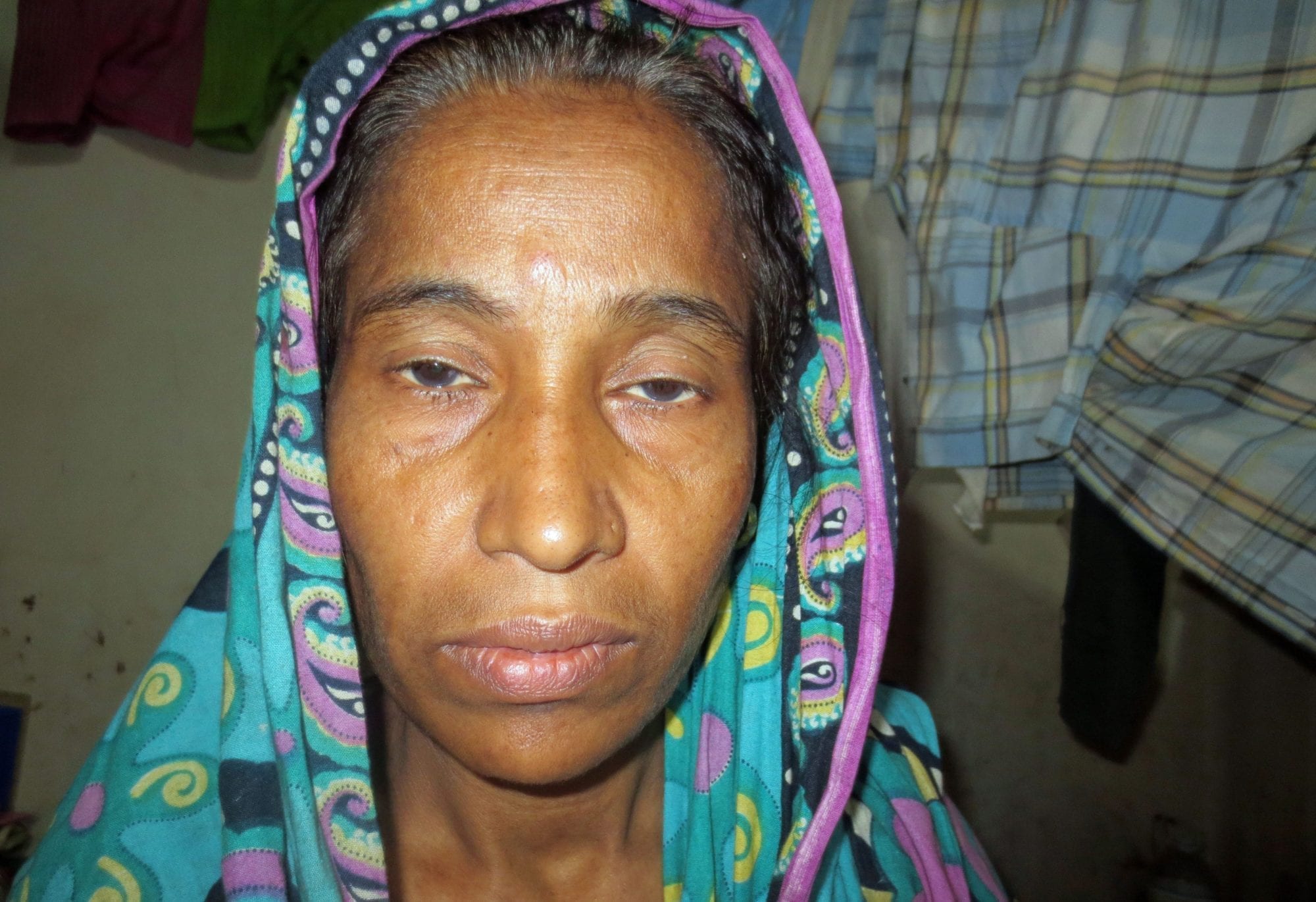When someone knocks on her door, Anjuma knows a debt collector is likely on the other side. But ever since she escaped with severe injuries from the disastrous fire at the Tazreen Fashions factory where she worked as a cleaner, she has had no money to pay her bills.
“People become the prisoners of jail, but I became a prisoner of the world,” Anjuma, 45, said with a blank look. When the fire broke out, killing 112 workers at Tazreen, on the outskirts of Dhaka, Bangladesh, Anjuma jumped out a fourth-floor window onto a nearby roof. But her leg was sliced by a metal rod, and the debilitating injuries she sustained have made it impossible for her to work again. Faruk, a fellow worker who helped her escape, died in the consuming blaze. Anjuma also lost three cousins at Tazreen, one of whom was never found.
“My husband is a rickshaw puller but he is very old and not able to work more,” Anjuma said. She has three sons and a daughter. Among them, only one takes care of her. But he earns little, and has gone into debt as well, trying to help her. She has so many medical expenses, she cannot afford rent or food, and her landlord twice locked her out of the house for not paying rent. She’s now seven months behind in payments to her landlord.
Anjuma received no compensation for her injuries. Not from her factory employer. Not from the Western brands whose clothes were made at Tazreen. And not from the government. Each week, she travels to a hospital for treatment and finds it difficult even to pay for the transportation.
Since the Tazreen disaster, Anjuma often feels dizzy. She has difficulty walking and is weak because “days pass by without food.” She recently passed out from blood clots in her nose and chest. Once, Anjuma stitched beautiful kantha (handcrafted material). Now, she can no longer do fine needlework because she cannot see well.
As a survivor of the Tazreen fire, Anjuma wants the government to help her with medical expenses so she can again earn a wage and pay her bills. Anjuma does not know how she will manage her medical treatment expenses, pay her debt or support her household. But she does know this: She will never again utter the words, “garment factory.”

